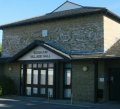The Royalists of Bosham
The Royalists of Bosham (Boseham) in the first Civil War
(1647)
The war was a patchy affair as both sides were ill prepared and had to recruit
soldiers as they went along. Broadly speaking, Parliamentary ('Roundhead')
forces were strongest in the south-east and east, while the Royalists
('Cavaliers') dominated the north, the Midlands, Wales and the West
Country. In fact, most regions were divided, with villages and even
families split in their loyalties.
Money was a problem throughout the war: troops often went unpaid and had
to take 'free quarter' in villages, paying for shelter and food with
certificates that often turned out to be worthless. Travel was difficult
as the armies were laden with unwieldy equipment that frequently got stuck
in lanes. As a result, areas such as Oxfordshire, Berkshire and West
Yorkshire suffered almost continual fighting, while large parts of Wales,
East Anglia and Kent barely saw soldiers.
Oliver Cromwell, a gifted cavalry leader, rose quickly through the ranks
during the First Civil War. Having proved his brilliance at the battle of
Marston Moor, he reorganised Parliament's troops into the New Model Army,
recruiting 'Godly men' rather than gentlemen and imposing strict
discipline.
His forces destroyed the king's main army at Naseby in June 1645. In May
1646, two months after the last Royalist army in the field had
surrendered, Charles placed himself in the hands of the Scottish army. In
January 1647, for the price of £400,000, the Scots handed Charles over to
Parliament, who imprisoned him at Hampton Court. While a nervous and
divided Parliament negotiated with the king, New Model Army radicals
joined with the Levellers, a group of London intellectuals, and –
in the Putney Debates – demanded back-pay, freedom of worship and the vote
for all men.
The movement culminated in part of the
army staging a mutiny, which Cromwell put down in person.
Here are the results as decreed by Parliament for a couple of Bosham Men.
First this to understand how lucky they
were.... House of Commons Journal 8th December 1646
Resolved: That if any Person or Persons whatsoever, shall, from
henceforth, raise Arms, or maintain Arms, against both or either of the
Houses of Parliament, or their Forces, that every such Person and Persons
shall die without Mercy: And that his and their whole Estates shall be
confiscated.
House of Commons Journal Volume 5 20
May 1647
Resolved, &c. That this House doth accept
of the Sum of Forty Pounds, of Edward Trinlett, of Boseham, in the County
of Sussex, Yeoman, for a Fine, for his Delinquency: His Offence is, That
he was in Arms against the Parliament: His Estate is Nineteen Pounds and
Three Shillings per Annum.
Resolved, &c. That this House doth accept of the Sum of Twenty Pounds, of
Thomas Pierce, of Boseham in the County of Sussex, Yeoman, for a Fine, for
his Delinquency: His Offence is, That he was in Arms against the
Parliament: His Estate is Twenty Pounds per Annum for Life.
"An Ordinance for granting a Pardon unto Edward Trinlett, of Boseham in the
County of Sussex, Yeoman; Thomas Pierce, of Boseham in the County of
Sussex, Yeoman; Thomas Kercher, of Harsley in the County of Southampton,
Gentleman; William Goble, of Boxgrove in the County of Sussex, Yeoman; and
unto John Fisher, of Chute in the County of Wiltes, Gentleman; for their
respective Delinquencies; and for Discharge of the Sequestrations of their
respective Estates; was this Day read; and, upon the Question, passed; and
ordered to be sent unto the Lords for their Concurrence. "
Let no-one in Bosham henceforth, raise Arms, or maintain Arms, against
both or either of the Houses of Parliament therefore ! :o) |



